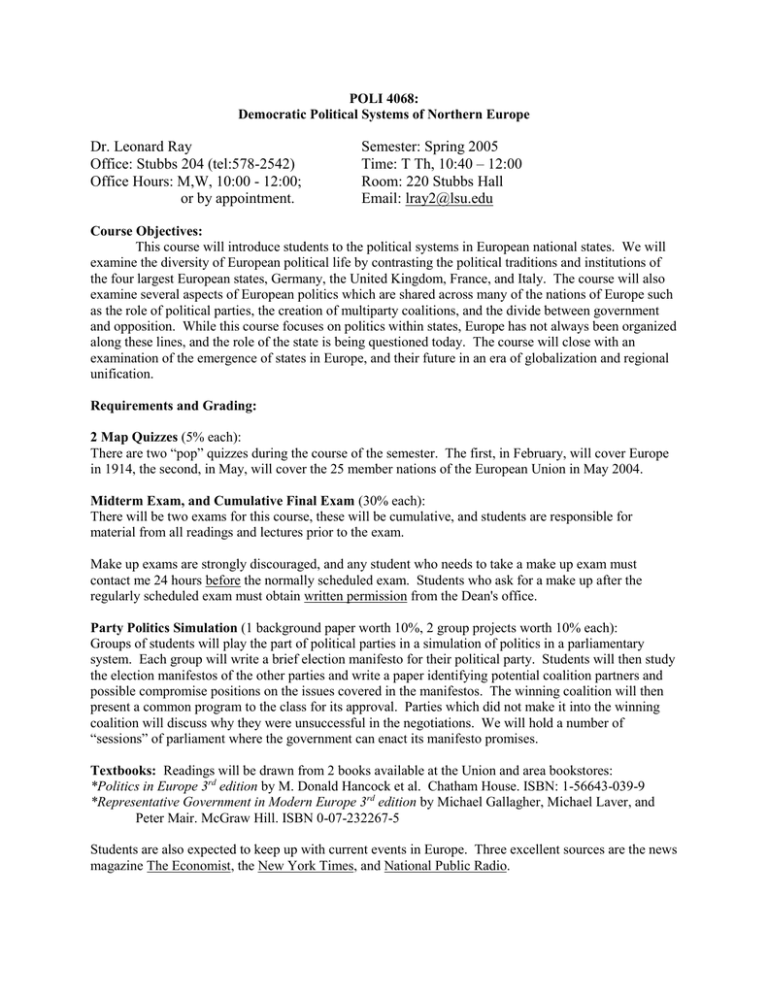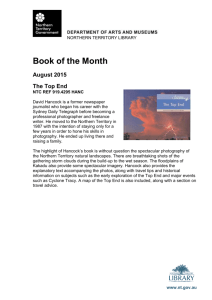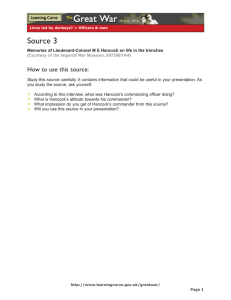POLI 4068 Syllabus
advertisement

POLI 4068: Democratic Political Systems of Northern Europe Dr. Leonard Ray Office: Stubbs 204 (tel:578-2542) Office Hours: M,W, 10:00 - 12:00; or by appointment. Semester: Spring 2005 Time: T Th, 10:40 – 12:00 Room: 220 Stubbs Hall Email: lray2@lsu.edu Course Objectives: This course will introduce students to the political systems in European national states. We will examine the diversity of European political life by contrasting the political traditions and institutions of the four largest European states, Germany, the United Kingdom, France, and Italy. The course will also examine several aspects of European politics which are shared across many of the nations of Europe such as the role of political parties, the creation of multiparty coalitions, and the divide between government and opposition. While this course focuses on politics within states, Europe has not always been organized along these lines, and the role of the state is being questioned today. The course will close with an examination of the emergence of states in Europe, and their future in an era of globalization and regional unification. Requirements and Grading: 2 Map Quizzes (5% each): There are two “pop” quizzes during the course of the semester. The first, in February, will cover Europe in 1914, the second, in May, will cover the 25 member nations of the European Union in May 2004. Midterm Exam, and Cumulative Final Exam (30% each): There will be two exams for this course, these will be cumulative, and students are responsible for material from all readings and lectures prior to the exam. Make up exams are strongly discouraged, and any student who needs to take a make up exam must contact me 24 hours before the normally scheduled exam. Students who ask for a make up after the regularly scheduled exam must obtain written permission from the Dean's office. Party Politics Simulation (1 background paper worth 10%, 2 group projects worth 10% each): Groups of students will play the part of political parties in a simulation of politics in a parliamentary system. Each group will write a brief election manifesto for their political party. Students will then study the election manifestos of the other parties and write a paper identifying potential coalition partners and possible compromise positions on the issues covered in the manifestos. The winning coalition will then present a common program to the class for its approval. Parties which did not make it into the winning coalition will discuss why they were unsuccessful in the negotiations. We will hold a number of “sessions” of parliament where the government can enact its manifesto promises. Textbooks: Readings will be drawn from 2 books available at the Union and area bookstores: *Politics in Europe 3rd edition by M. Donald Hancock et al. Chatham House. ISBN: 1-56643-039-9 *Representative Government in Modern Europe 3rd edition by Michael Gallagher, Michael Laver, and Peter Mair. McGraw Hill. ISBN 0-07-232267-5 Students are also expected to keep up with current events in Europe. Three excellent sources are the news magazine The Economist, the New York Times, and National Public Radio. Course Schedule: In order to keep up with the course, try to read the indicated material before class. Jan 18. Jan -20. Introduction, course syllabus. Overview of European political development. Hancock et. al. Introduction Gallagher et. al Ch. 1. Jan 25. Constitution of the United Kingdom: Still the prototypical parliamentary system? Hancock et. al. Ch. 1, Gallagher et. al Ch. 2. Constitutional Reform in the UK Jan 27. Feb 1. Feb 3. UK political parties and policies Hancock et. al. Chs. 3, 4. UK public policy Hancock et. al. Ch. 5. Feb 8 Feb 10. Feb 7-9 Mardi Gras Holiday Electoral Systems and Election Game Gallagher et. al Ch. 11. Feb 15. Party systems and families "Frozen?" Gallagher et. al Ch. 7, 8. Party systems and families "Thawing" Gallagher et. al Ch. 9, 10. Feb 17. Feb 22. Feb 24. March 1. March 3. France, the cycle of regimes and the 5th Republic. Hancock et. al. Ch. 6, 7, 9 Parliament-Executive relations in France: Still Semi-Presidential? Gallagher et. al Ch. 4. French political parties Hancock et. al. Ch. 8 French Public Policy Hancock et. al. Ch. 10 (Hand in background paper March 3) March 8. Mid Term Exam March 8 March 10. Italian Unification and postwar Italy Hancock et. al. Chs. 16, 17 (Hand in Party Manifestos March 17) March 15. The Italian Republic Version 1.05 Hancock et. al. Chs. 18, 19, 20 March 17. Italy (cont.) Week 10: March 22-24 Spring Break March 29. German Political Development Hancock et. al. Chs. 11, 12 March 31. German and other federal models Gallagher et. al Ch. 6 (Hand in Strategy Papers March 31) April 5. April 7. The German electoral and party system Hancock et. al. Ch. 13, 14, 15 Coalition Government Formation Gallagher et. al Ch. 12 April 13. April 15. Government Formation negotiations April 13 Introduction to the European Union Hancock et. al. Ch. 31 Gallagher et. al. Ch. 5 up to page 117 April 19. (Queen’s speech/ post mortem papers due April 19) (Hand in Bills for Parliamentary session I by April 21) Institutions of the European Union Hancock et. al. Chs. 32, 33 April 21. April 26. April 28. Parliamentary Session I (Hand in Bills for Parliamentary session II by April 28) Policies of the European Union Hancock et. al. Chs. 34, 35 Gallagher et. al. Ch. 5 page 118 onwards May 3. May 5. Parliamentary Session II Eastern enlargement and new candidates for EU membership Gallagher et. al. Ch. 15 Final Exam Tues. May 10 12:30 – 2:30





